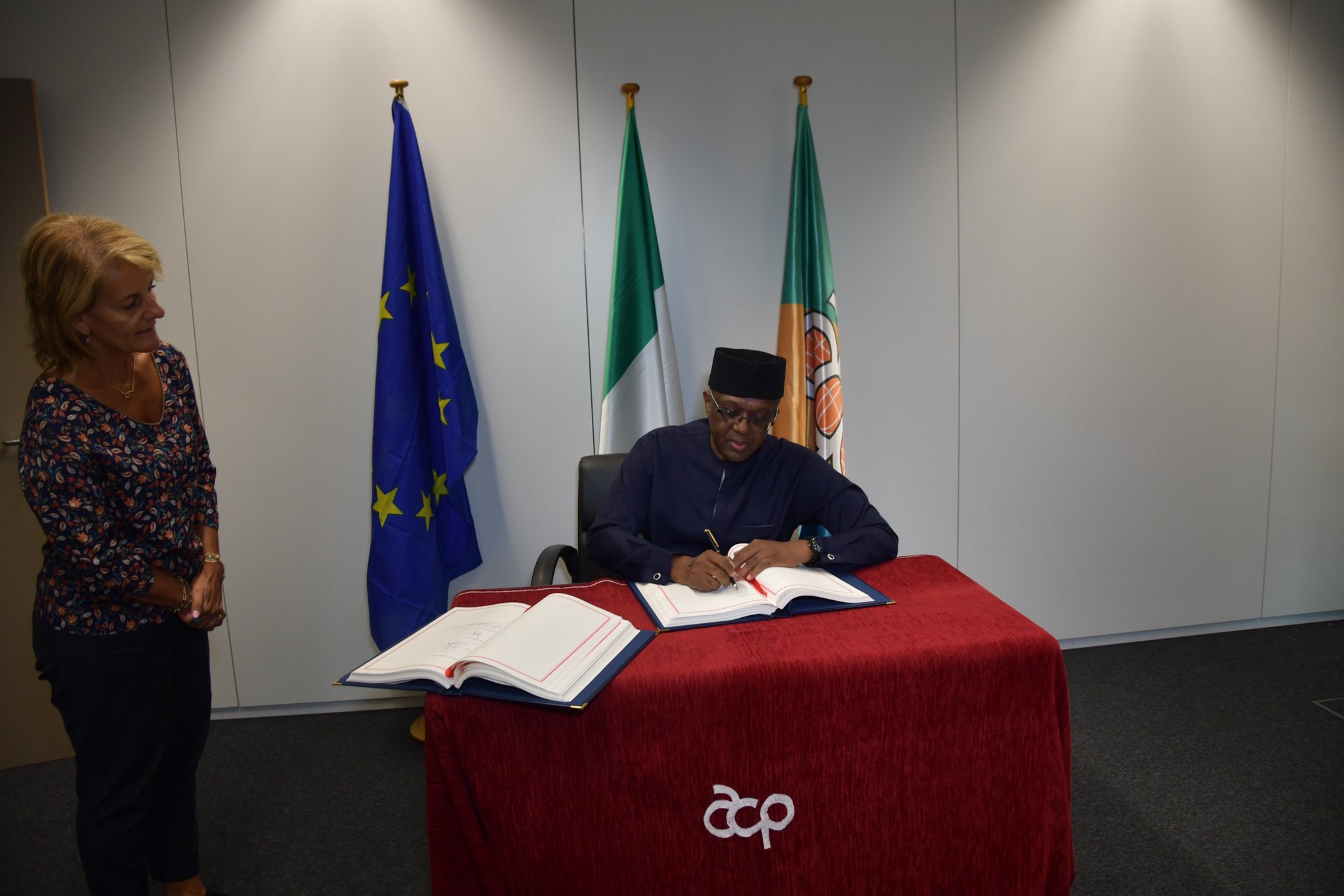The Samoa Agreement, signed by Nigeria and other OACPS members, focuses on global challenges without mandating LGBTQ rights as previously speculated.
The controversial Samoa Agreement has become a topic of discussion for many Nigerians as they wonder what it entails since the news that Nigeria has signed.
On November 15, 2023, the European Union and member states came together to sign one new partnership agreement, which was referred to as the Samoa Agreement.
The member states that signed the agreement are called the Organisation of African, Caribbean and Pacific States, also known as OACPS.
About 27 member states from the EU signed the agreement and 79 African, Caribbean and Pacific countries came together to also sign the agreement.
A newspaper organisation (Not OURS) had reported that the Samoa Agreement signed by the Nigerian Government contains clauses that mandate Lesbian, Gay, Bisexual, and Transgender rights.
The newspaper’s report was premised on an opinion article by a Lagos-based lawyer, Sonnie Ekwowusi, that articles of the agreement systematically legalise LGBT.
However, we have reviewed the 172-page document and found out that the agreement does not contain LGBT clauses, as claimed by the lawyer.
According to the reviewed document and EU press statements, the Samoa agreement focused only on addressing global challenges.

In a post via its official X page on June 28, 2024, the OACPS confirmed that Nigeria has joined other member states to sign the Samoa agreement.
The post reads, “Nigeria today signed the Samoa Agreement, joining 72 fellow members of the Organisation of African, Caribbean, and Pacific States (OACPS), in a pledge to enhance OACPS-EU relations international cooperation.
“Ambassador Obinna Chiedu Onowu represented his country to sign the Samoa Agreement at the OACPS Secretariat in Brussels. The majority of the 79 OACPS member states signed the agreement in Apia, Samoa, on November 15, 2023, which has been provisionally applied since 1 January 2024.
“The Samoa Agreement serves as a vital legal framework for cooperation between the OACPS and the European Union, with the aim of promoting sustainable development, fighting climate change and its effects, generating investment opportunities, and fostering increased collaboration among OACPS member states at the international stage.”
Below are quick facts about the Samoa Agreement
- Partnership Agreement: The Samoa Agreement is a partnership framework between the European Union (EU) and member states of the Organisation of African, Caribbean, and Pacific States (OACPS).
- Signing and Participants: Signed on November 15, 2023, in Samoa, the agreement involves 27 EU member states and 79 OACPS member countries, including Nigeria.
- Focus Areas: It focuses on addressing global challenges such as sustainable development, climate change mitigation, investment promotion, and international collaboration among OACPS member states.
- Signing by Nigeria: Nigeria signed the agreement on June 28, 2024, represented by Ambassador Obinna Chiedu Onowu at the OACPS Secretariat in Brussels.
- Key Priorities: The agreement emphasizes six main priorities: human rights, democracy, governance, peace, security, human and social development, economic growth, environmental sustainability, and mobility/migration.
- Decision-Making Principle: It stipulates that decisions and actions will be made at appropriate levels—domestic, regional, or multi-country—based on the situation.
- Absence of LGBTQ Clause: Contrary to earlier speculations, the Samoa Agreement does not include clauses mandating LGBTQ rights, aligning with Nigeria’s laws and cultural norms.
- Signing Details: All EU states signed by November 15, 2023, and 74 out of 79 OACPS members, including Nigeria, signed before the June 30, 2024 deadline.
- Development Cooperation: It serves as a robust framework for development cooperation between Nigeria and the EU, focusing on sustainable growth and mutual benefit beyond traditional aid models.
- Ratification Process: The agreement requires ratification by Nigeria’s Federal Executive Council, National Economic Council, and National Assembly after due consideration and approval.





